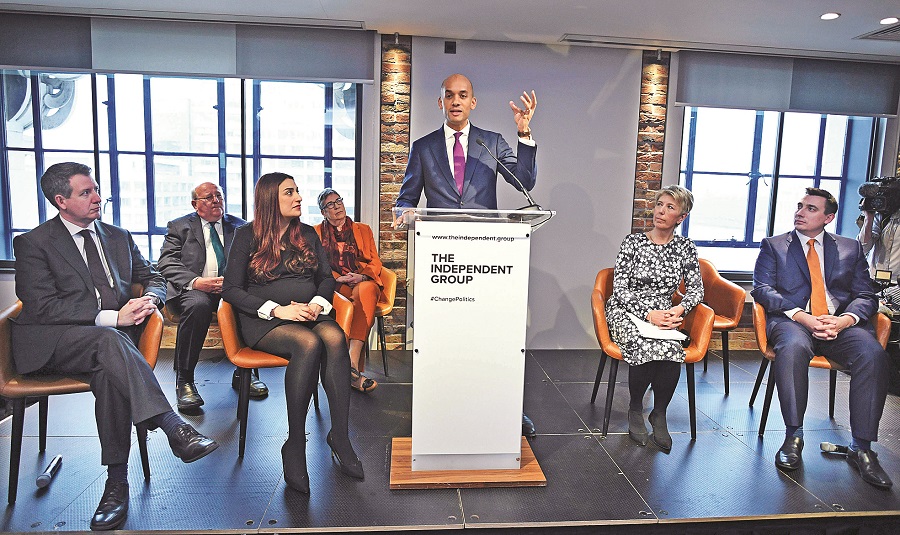Seven MPs quit UK's Labour Party in protest at policies
By Jonathan Powell in London | chinadaily.com.cn | Updated: 2019-02-19 02:06

Leadership criticised for its handling of alleged anti-Semitism, stance on Brexit
Seven Members of Parliament have quit the United Kingdom’s Labour Party in protest at Jeremy Corbyn’s leadership, his stance on Brexit and foreign policy issues, as well as what they regard as the failure to deal with anti-Semitism.
The seven MPs, Chuka Umunna, Luciana Berger, Chris Leslie, Angela Smith, Mike Gapes, Gavin Shuker and Ann Coffey took turns to explain their personal reasons for quitting the party at a press conference in Westminster, on Monday morning.
Luciana Berger said the party's core values of equality, opportunity for all, and anti-racism had been “consistently and constantly violated, undermined and attacked.”
She added: “I cannot remain in a party that I have today come to the sickening conclusion is institutionally anti-Semitic ... I am leaving behind a culture of bullying, bigotry and intimidation.”
In a statement, Corbyn said he was “disappointed” the MPs had felt unable to continue working for the policies that “inspired millions” at the 2017 election.
The MPs are not launching a new political party – they will sit in Parliament as the Independent Group.
But Chuka Umunna said they had “taken the first step” and urged other Labour MPs – and members of other parties – to join them in “building a new politics”.
“Politics is broken, it doesn't have to be this way. Let's change it,” he said at the launch event in central London.
He said there would be “no merger” with the Liberal Democrats and the group wanted to “build a new alternative”.
Mike Gapes said: “I am sickened that Labour is now perceived by many as a racist, anti-Semitic party."
He added that it was “increasingly clear that prominent figures in the Corbyn Labour leadership do not want to stop Brexit”.
In a statement posted online, the MPs attacked Corbyn saying the Labour Party was pursuing policies which would “weaken our national security".
They also accused Labour of failing “to provide a strong and coherent alternative to the Conservative Party’s approach”, adding it "threatens to destabilise the British economy in pursuit of ideological objectives”.
The UK is due to leave the European Union on March 29, but British legislators have not agreed on a divorce deal outlining departure rules and future trade terms.
Many fear the so called backstop part of the withdrawal deal proposed by British Prime Minister Theresa May would mean the UK staying closely aligned to EU rules for the long term, without Britain being able to end the agreement unilaterally.
On Sunday, May wrote to every Conservative MP telling them she will try to eliminate the risk of the Brexit backstop being applied indefinitely and urging them to “move beyond what divides us and sacrifice personal preferences for the national interest”.
This week, May will speak to every EU leader and meet Jean-Claude Juncker, the European commission president, seeking changes to the withdrawal text and the backstop plan to prevent the return of customs checks on the Irish border.
























